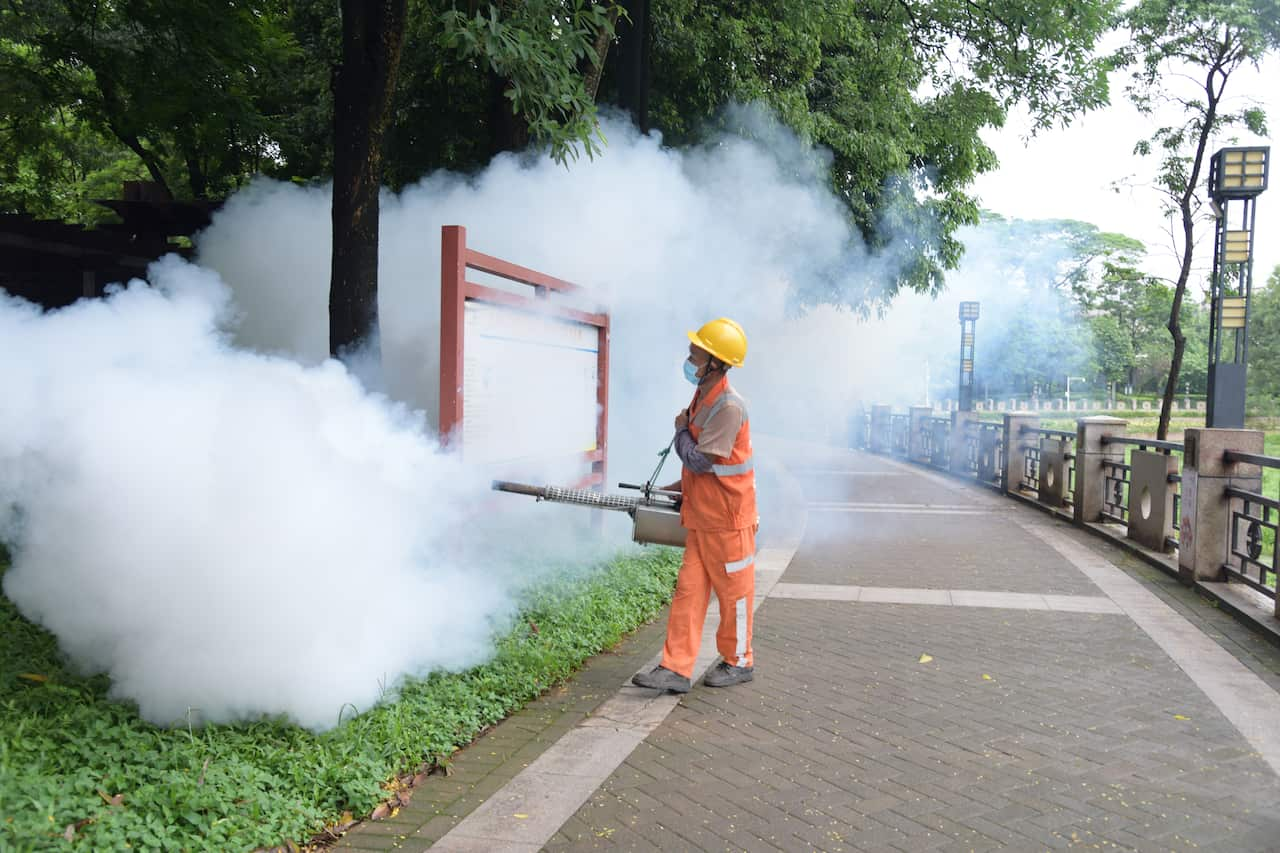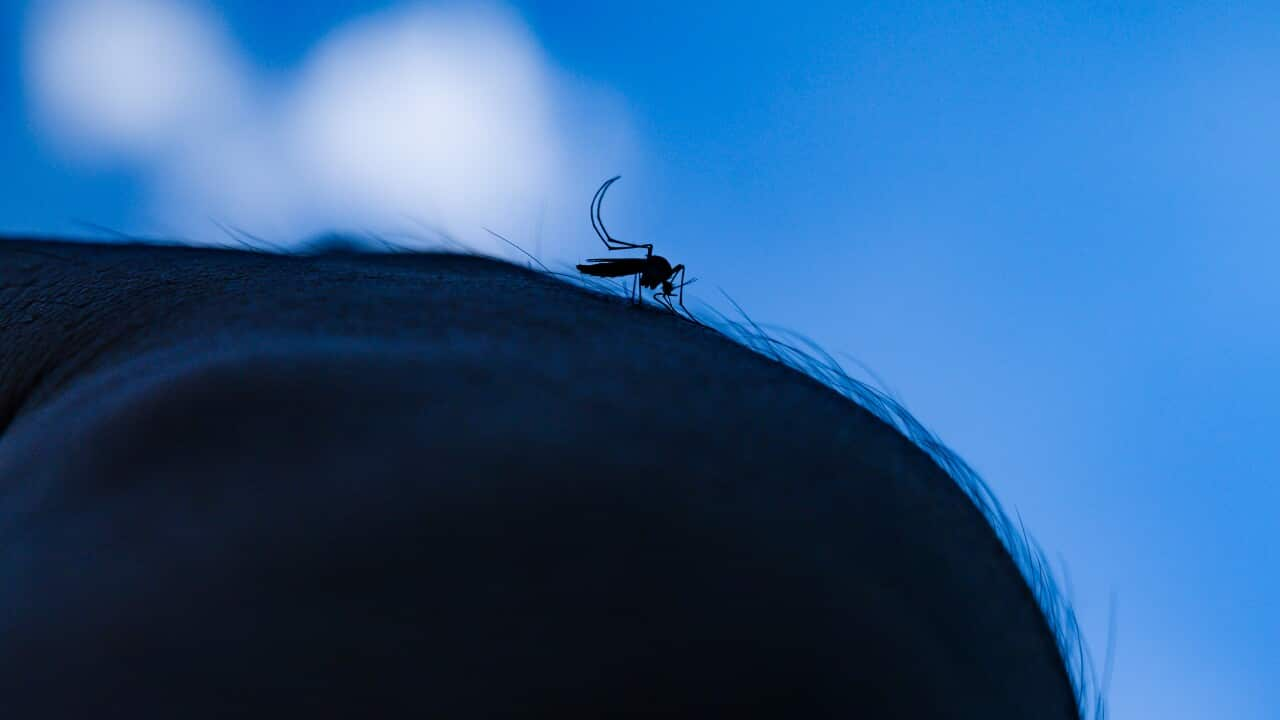COVID-style measures are returning in parts of southern China after thousands of people contracted the mosquito-borne chikungunya virus.
Chinese authorities have reported more than 7,000 cases of the virus in recent weeks in Guangdong province, which is the country's most populous province with a population of more than 125 million people.
Local media say the province has taken measures like "citywide cleanup efforts" to "win the tough battle against the outbreak". Meanwhile, the BBC reports that in Foshan, the hardest-hit area, those infected must stay in hospitals.
According to local media, 5,000 larva-eating fish have been released into lakes in an effort to eliminate mosquitoes at their source.
Earlier in July, the World Health Organization (WHO) issued an urgent call for action to prevent a chikungunya virus epidemic, which the world faced in 2004-2005.

"We are seeing history repeating itself," Diana Rojas Alvarez, a medical officer at the WHO, said last month. She warned that 5.6 billion people across 119 countries were at risk.
The current surge started early this year, with significant outbreaks in the same Indian Ocean islands that were hit more than 20 years ago, including Réunion, Mayotte and Mauritius. The islands are off the southeastern coast of Africa.
Here is what you need to know about the chikungunya virus.
What is chikungunya?
Chikungunya is a viral disease caused by the virus of the same name (CHIKV), which was first identified during an outbreak in Tanzania in 1952, according to the WHO.
Since then, it has been observed in different countries, especially in Africa and Asia.
The first urban outbreaks of the disease were reported in Thailand in 1967 and in India during the 1970s. Since 2004, the frequency and spread of CHIKV outbreaks have increased.
The virus has now been identified in over 110 countries in Asia, Africa, Europe and the Americas.
How does the virus spread?
People can contract chikungunya if bitten by an infected female Aedes Aegypti mosquito. These mosquitoes can also transmit the dengue, yellow fever and Zika viruses.
It can also go the other way, as the mosquito can get infected when it bites someone with chikungunya, and then it can pass it on to other people a few days later.
However, it cannot transmit directly from one person to another.
What are the symptoms?
The name, chikungunya, comes from a word in the Kimakonde language, spoken in Tanzania, Africa which means "that which bends up" — which describes the contorted posture of people with severe joint pain that can be brought on by the virus.
According to the United States Centers for Disease Control and Prevention (CDC), most infected people will develop symptoms that usually start three to seven days after being bitten by an infected mosquito.
Fever and joint pain are common symptoms. The joint pain is often debilitating, usually lasting a few days, but it can also be prolonged, lasting weeks, months, or even years.
Headache, muscle pain, joint swelling or rash, nausea, and tiredness are among the other symptoms.
Is the chikungunya virus deadly?
Death from chikungunya is rare, and most patients feel better within a week or two.
However, newborns, people older than 65 years old, and those with medical conditions like "high blood pressure, diabetes, or heart disease" are more at risk of more severe disease, according to the CDC.
Is there any cure?
The simple answer is no — there are no specific medicines or treatments for chikungunya, but Healthdirect, Australia's virtual public health information service, says people can use pain-relief medicines for the joint pain.
In some countries, such as the US, vaccines are available to prompt an immune response to help prevent the disease, but in Australia, no vaccine is available for the virus.
Healthdirect advises people at risk of infection to avoid mosquito bites by closing windows or covering them with mosquito nets or screens, wearing loose-fitting, light-coloured shirts with long sleeves, long trousers, and enclosed shoes, and avoiding areas where water can accumulate.
Is Australia at risk?
Mosquitoes that can carry chikungunya have been previously found in northern Queensland and the Torres Strait Islands, but the disease hasn't been spread by mosquitoes in Australia yet, the Healthdirect website states.
Australians are most likely to get chikungunya while travelling overseas, according to Healthdirect.
CDC has issued a travel health notice for outbreaks in Bolivia, Guangdong Province in China, Kenya, Madagascar, Mauritius, Mayotte, Réunion, Somalia and Sri Lanka.
— With additional reporting by Reuters
For the latest from SBS News, download our app and subscribe to our newsletter.

